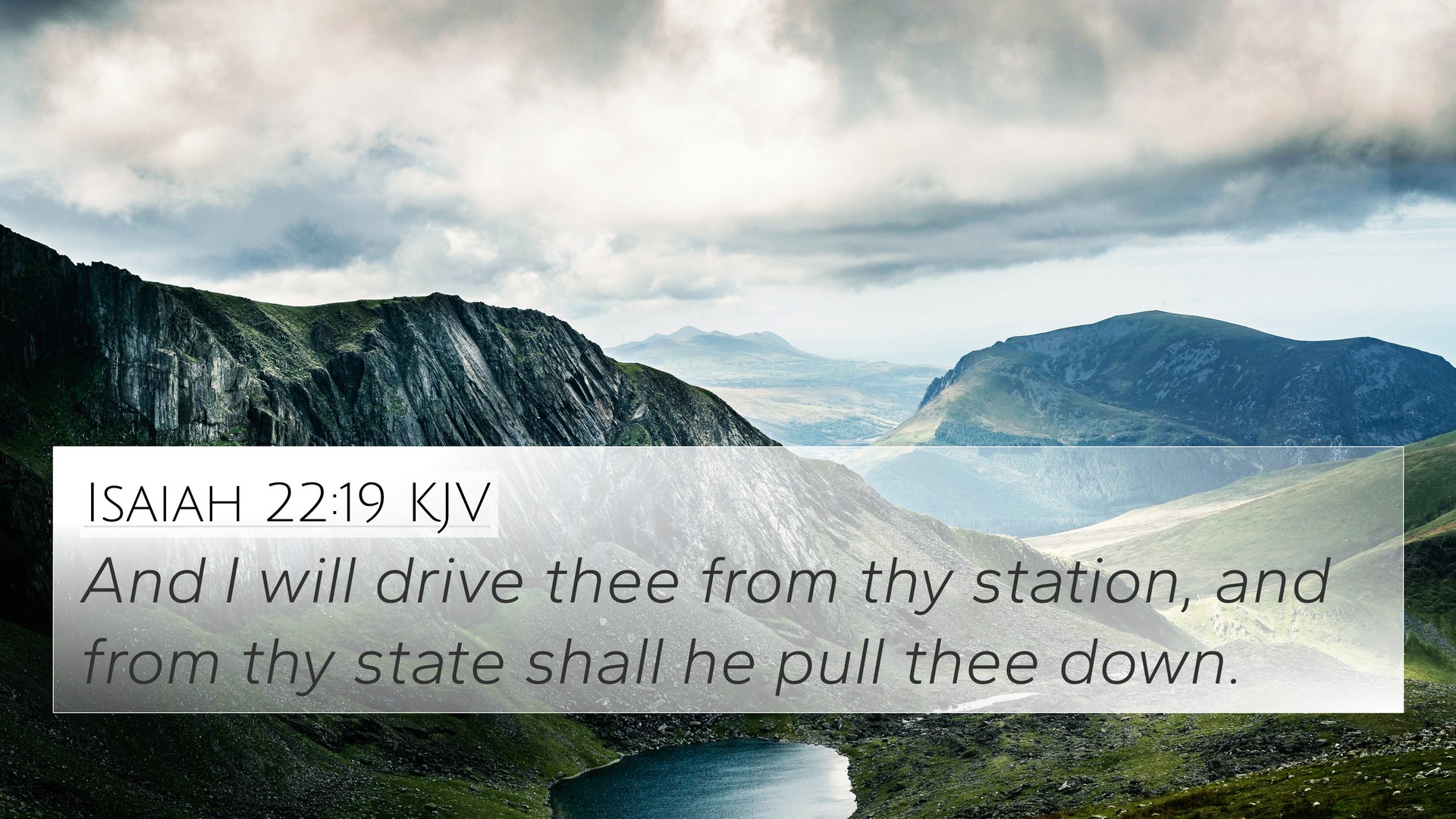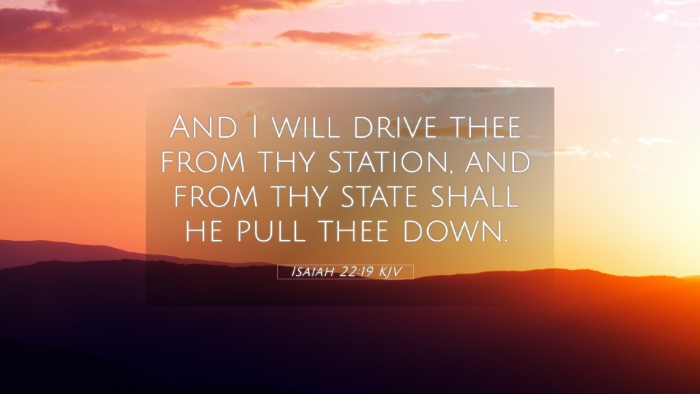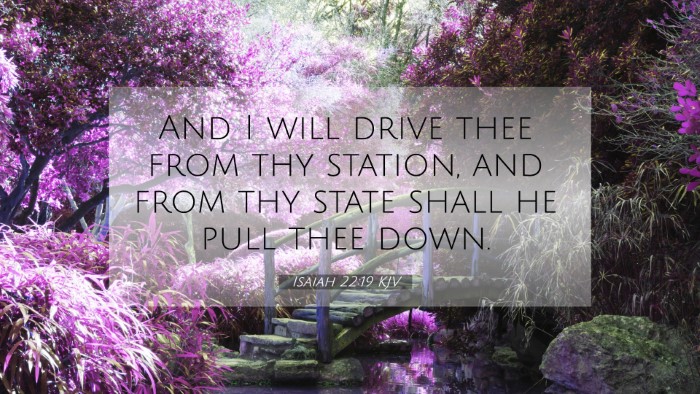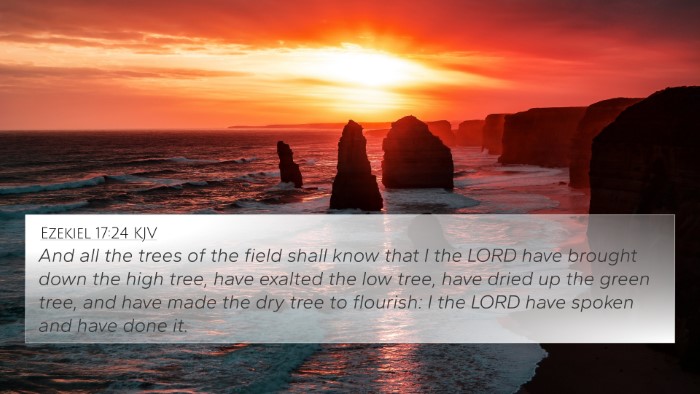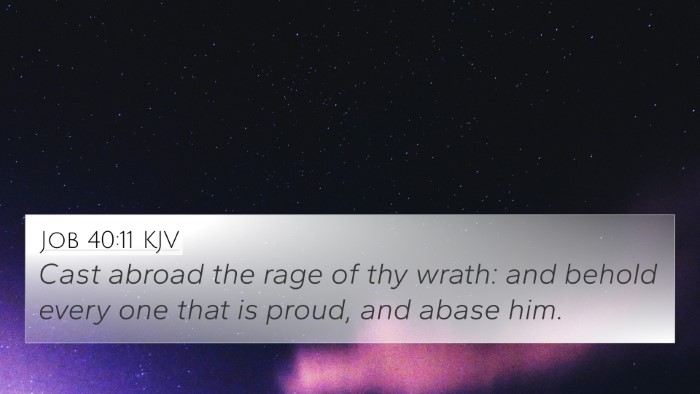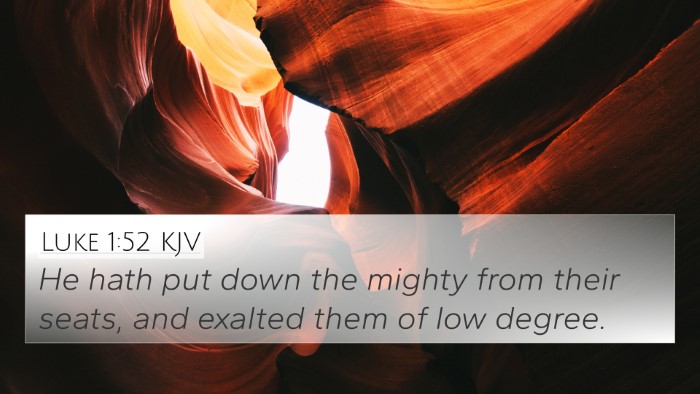Understanding Isaiah 22:19
Isaiah 22:19 states, "I will drive you out of your office, and you will be thrust down from your station."
This verse speaks of God’s judgment upon Shebna, a steward in King Hezekiah's court. It serves as a warning about the consequences of pride and the misuse of power.
Insights from Public Domain Commentaries
Various commentaries provide deep insights into the meaning of this verse. Below, we summarize key interpretations and the context within which it exists.
Matthew Henry
Matthew Henry emphasizes that the disgrace of Shebna is emblematic of divine retribution. He notes that Shebna had elevated himself and acted with arrogance, which ultimately led to his downfall. This reflects the theme of God’s sovereignty over human affairs and the importance of humility in positions of authority.
Albert Barnes
Albert Barnes focuses on the historical context of Shebna's demise. He interprets the verse as part of God’s judgment on those who fail to fulfill their roles in a godly manner. Barnes stresses the implications of divine authority in governance, suggesting that when leaders stray from their responsibilities, they face God's wrath.
Adam Clarke
Adam Clarke provides a more detailed exegesis, linking Shebna's fall to the spiritual implications of leadership. He sees this verse as a cautionary tale regarding the consequences of pride. Clarke indicates that such passages serve as a warning to all believers about the necessity of humble service and accountability before God.
Thematic Connections
Isaiah 22:19 links with several other biblical texts, highlighting consistent themes of accountability, humility, and divine judgment. Below are some cross-references that illustrate these connections:
- Proverbs 16:18 - “Pride goes before destruction, and a haughty spirit before a fall.”
- James 4:6 - “God opposes the proud but shows favor to the humble.”
- Luke 14:11 - “For everyone who exalts himself will be humbled, and he who humbles himself will be exalted.”
- Matthew 23:12 - “Whoever exalts himself will be humbled, and whoever humbles himself will be exalted.”
- Jeremiah 45:5 - “And do you seek great things for yourself? Seek them not.”
- 1 Peter 5:5 - “God opposes the proud but gives grace to the humble.”
- Isaiah 10:12 - “When the Lord has finished all His work against Mount Zion and against Jerusalem, He will say, 'I will punish the speech of the arrogant heart of the king of Assyria.'”
Applying the Lessons of Isaiah 22:19
The lessons from Isaiah 22:19 remain relevant for contemporary readers. Understanding the dangers of pride and the importance of humility can guide personal conduct as well as leadership.
To delve deeper into the scriptural connections, one can utilize tools for Bible cross-referencing, such as a Bible concordance or a Bible cross-reference guide.
Key Takeaways
- God's judgment often serves as a corrective measure against those in authority.
- Humility is a crucial characteristic for believers, especially leaders.
- Understanding the context of individual verses enhances biblical study and interpretation.
Conclusion
Isaiah 22:19 serves as a powerful reminder of the consequences of pride and the importance of accountability before God. Through comparative Bible verse analysis, we see a broader theme of humility woven throughout scripture. By engaging in cross-referencing Biblical texts, believers can enrich their understanding and application of God’s word in their lives.
